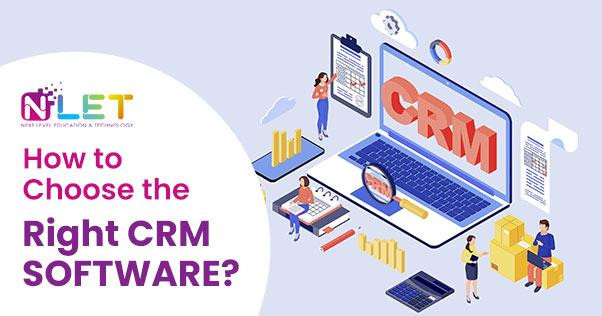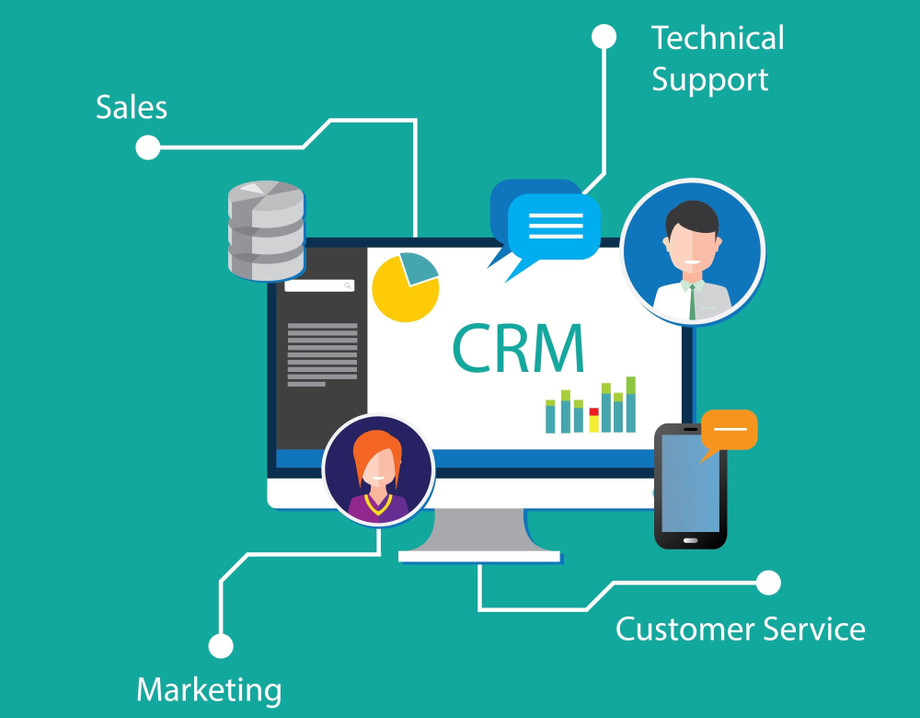Why CRM software is powerful for your business
Posted By Mayank jain
Body
As of today, around 80% of the total potential customers say that personalised experiences are crucial when it comes to making a purchase decision.
In the past, it was enough to address customers by name and be relevant, but it’s no longer true. At this point, your company must gather as much information about every customer as possible.
It is an incredible challenge for one company to do all of this. Basically, you need to keep your customers happy with the best CRM Software.
What does CRM mean?
CRM refers to customer relationship management. It includes anything you need to track interactions with your clients, including software, tools, and strategies. While CRMs are strongly connected with sales teams, nearly any department in an enterprise can leverage its potential.
An effective CRM system is known as the single source of truth for your whole organisation. As a result, every team has a system to capture important customer data.
Additionally, the top CRM software integrates with every other data source you might need, such as your email service, accounting software, or anything else. With customizable dashboards, you can monitor everything about your customer journey, including contacts and sales pipelines.
Key Benefits of CRM Software
Customer relationship management brings every element of CRM under one roof. Also referred to as customer relationship management (CRM), this is the most advanced version of these tools and strategies.
With the help of CRM tools like CRM, we’ll look into exactly what it can do that a simple spreadsheet can’t:
Bring every data together
Once storing all your data in one location, use the best CRM (customer relationship management) software to make it accessible across several departments. As soon as new data is made available, you can view it on a personalised dashboard.
Create and manage your sales pipeline
A top CRM software helps your sales process become more efficient by making sure that all members of your team stay on the same page throughout the sales pipeline or customer journey. Any team member can support customers as needed, just when they need it thanks to the CRM acting as a single source of truth.
Simplify your workflows
By implementing CRM software, which may make the entire sales process more efficient. Sell more by moving clients through phases, sending follow-up emails, and maintaining customer loyalty.
Sync your tools to streamline sales process:
Integrate other tools seamlessly that everything your sales process ever needs. You can integrate your best CRM software for small business to simplify every single task from notifying the sales team when a new lead is qualified to start sending tailored emails.
Take control of your contacts:
Set up a customer relationship management (CRM) system to save every contact or customer your firm comes into contact with. Contact information may be updated right on the card, with sales, marketing, support, and other functions. No more dealing with wrong information or tedious back-and-forth.
Nurturing existing customers
77% of consumers feel outstanding customer service causes them to stay loyal, and this is what makes customer relationship management (CRM) more than just a one-time transaction.
Provide seamless customer experience
By leveraging a centralised customer relationship management (CRM) solution, customers may seamlessly flow between sales and marketing, to customer service, and back again. As long as any of your team members engage with customers, they’ll always have up-to-date information about their past deals with the company, enabling them to handle issues more quickly.
Primary Features of CRM Software
It is difficult to know where to begin when implementing the best CRM software because it is capable of doing so much. In order to do this, let’s examine how sales, marketing, and support teams use a CRM.
Leverage the pipeline to grow sales
Assigning various sales stages to each of your sales reps enables every salesperson to have a complete image of the lead’s requirements before a contract is finalised. It is possible to modify the pipeline to fit different consumer demands, and the entire team is capable of reacting in an instant.
Keep track of contacts and leads
Every customer interaction should be written down and documented. Information provides all customers the opportunity to have a more complete understanding of your company, therefore before asking for the sale, sales agents must first create rapport with their clients.
Conduct an analysis of sales data
You can track everything about your customers, and analyse it with top CRM, software, because everything about your customers is tracked. Make sure your sales quota is met, conversion rate, and other key performance indicators (KPIs) are optimised in order to fine-tune your sales process and become even more efficient.
Collect data about your clients’ interests
Like sales, you can gather a huge amount of consumer information and use it to make your business. And CRM software real estate or any integration means you have comprehensive, connected tools for gathering data so you can craft brand-new visualisations that provide you cutting-edge information about your customers
Automate marketing operations
More effort is required in personalising marketing than in trying to reach as many customers as possible, although it is greatly facilitated by marketing automation. Lead nurturing campaigns, social media posts, next-stage progress moves prospects up the sales pipeline, and setting up workflow across teams may all be done with drip email campaigns.
Track support ticket across several channels
If you use the best crm software for small business, you will need to keep track of all of your calls, emails, and chats in your CRM. Every technique that the customer tries to reach you is visible on one dashboard. Leveraging customer data to build long-term client loyalty is at the heart of all we do.











Comments